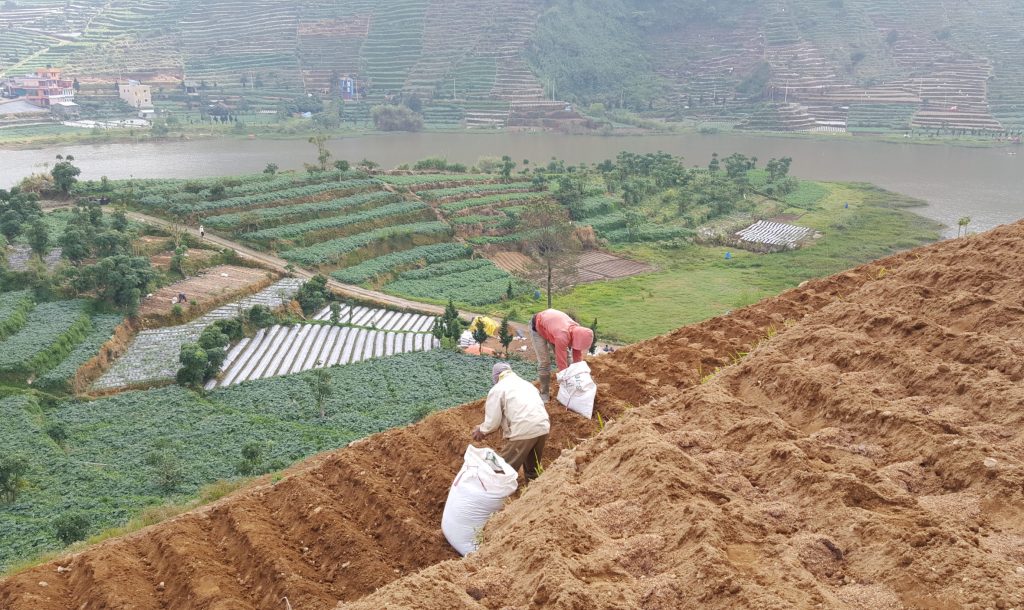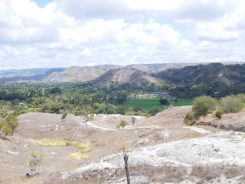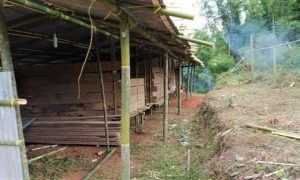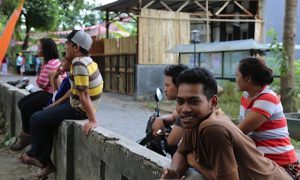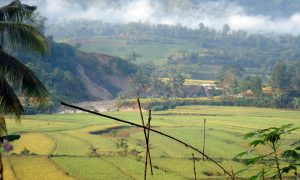Although President Jokowi has continued to expand Indonesia’s social protection scheme during the COVID-19 crisis, many still miss out or are ineligible for government assistance, as we discovered through our research on vulnerability, poverty, and social protection programs. How have households in rural areas of upland Central Java and Special Region of Yogyakarta (DIY) been impacted by the crisis and how are they coping?
To date, there have been no known cases of COVID-19 illnesses in either of the two villages, Cindaga and Kahawa (pseudonyms), where research was conducted. Leaders in both villages responded by imposing localised lockdowns. “Outsiders” are stopped from entering the villages without permission and hygiene procedures (hand washing/disinfectant and temperature checking) and social distancing rules must be followed. While these measures have likely prevented the spread of COVID-19, they have had a negative impact on household incomes. Activities which have normally generated supplementary incomes for farmers, especially from tourism (homestays, tour guides, souvenir stalls and motorbike taxis) and sand mining (sand is used in the building and construction industry), ground to a sudden halt. Home industries, such as bamboo handicraft businesses, usually run by women, have suffered a significant sales downturn, weakening households’ purchasing power.
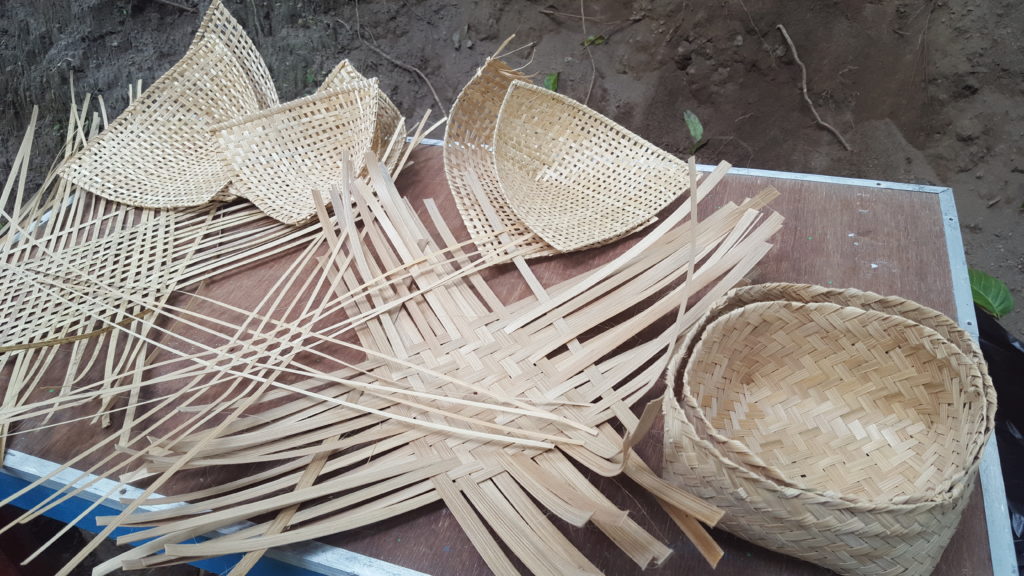
Bamboo handicraft orders have dropped reducing womens’ incomes. Photograph by the author.
Income from agriculture is critical for maintaining livelihoods. In the Central Javanese village of Cindaga, where farmers grow potatoes and carica (a type of pawpaw) fruit, production continued as normal, except for one week in late May. For that week, the Wonosobo regent (bupati) closed the village, including to produce traders. Fruit farmers were particularly impacted, as spoiled carica could not be sold after the ban was lifted on June 1. Income for potato farmers have remained steady at Rp10,000 (US$0.70) per kilogram, and the major concerns for potato farmers are excessive rain, drought, or high winds. However prolonged decline in their customers’ purchasing power for another six months will adversely impact their incomes. Villagers who lost their jobs in the tourism industry have returned to work as farm labourers for large landowners who, previously, employed workers from outside the village.
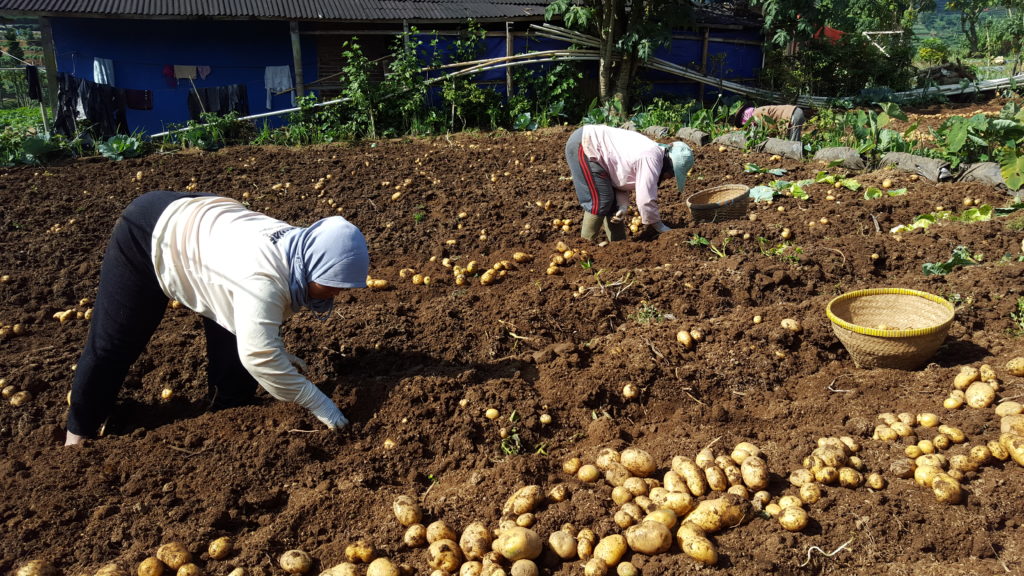
Backbreaking farm work is popular again. Photograph by the author.
In Kahawa, dairy farmers have continued to supply milk to traders who come to the village in trucks twice a day. Concerningly, however, some locals in need of cash, have sold cows for half their pre-COVID-19 value (Rp2 million instead of Rp4 million). In this village, ‘fast money’ has usually been earned through sand and rock quarrying. However, as this work has dried up, liquidating assets is a necessary coping strategy. According to locals, the unemployment rate in this village immediately jumped because sand mining operations ceased. Given that many of the sand labourers are young people, often with limited education or other skills, this demographic is feeling the economic downturn keenly.
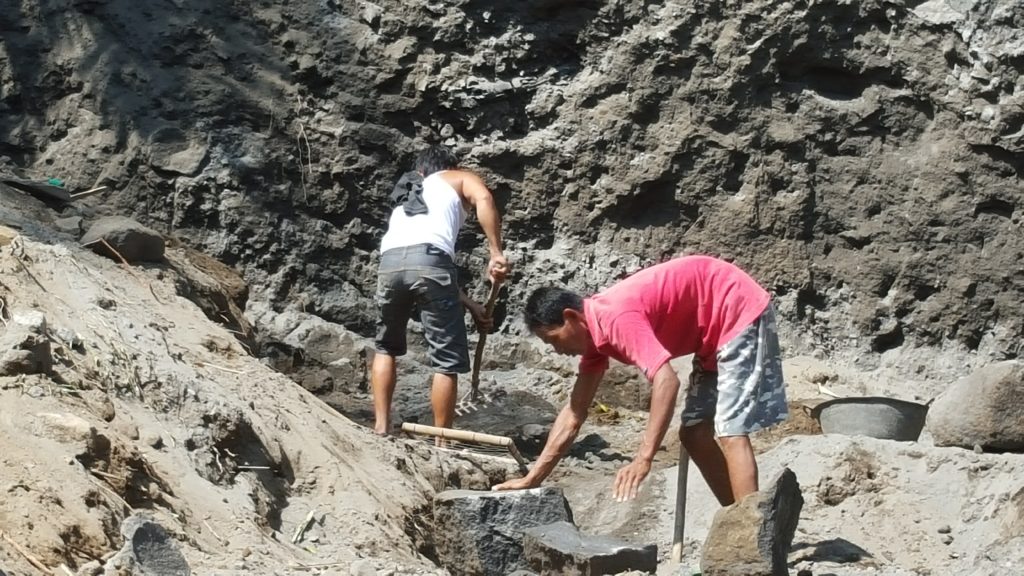
Sand and rock labouring used to be fast money. Photograph by the author.
Before COVID-19, private money lenders often provided loans to Kahawa villagers. In an agreement made between residents and money lenders, while the COVID-19 crisis continues, the lenders are prohibited from entering the village to collect debt repayments. These “loan sharks” have not been to the village for the last three months. Meanwhile, in Cindaga, villagers have continued to lend money to family and neighbours in need and remain wary of taking out loans with banks or using private money lenders, due to high interest rates.
In terms of food security, informants have not reported any grave problems. The price of sembako (staple foods like rice, oil, eggs, and sugar) remains stable. Landowners and farmers continue to source fruit and vegetables from their own gardens. Those who have chickens and ducks have a ready supply of fresh meat protein. Villagers are also looking out for each other, with Rukun Tetangga (RT – the smallest administrative division of a village consisting of several households) in some hamlets organising “self-help-initiatives” that, for example, set aside some of the RT budget to buy and distribute 10kg of rice for each family. Zakat (Islamic charity), distributed in the middle of May, also supported vulnerable households to buy additional food.
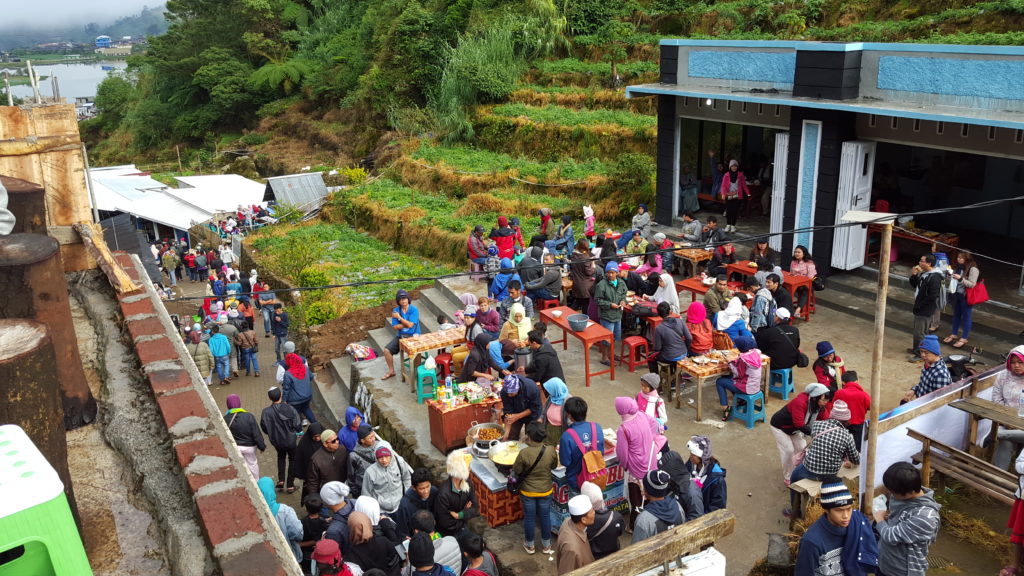
Income from tourism at site like this has dried up. Photograph by the author.
In the wake of the pandemic, the central government has expanded the BLT program to households ranked as poor according to the government’s criteria. Eligible households receive direct cash assistance of Rp600,000 (US$40) per month for three months. In one of the dusun in Kahawa village, 31 households have been added to the BLT program since the crisis hit. However, according to informants in the village, this scheme is generating jealousy and problems in the community, especially among those who have lost their jobs but are ineligible for the BLT program or any of the other government programs.
COVID-19 mitigation measures compound an economic crisis in Sumba
Infection rates appear low in NTT, but the economic impacts of the pandemic combined with poor harvest yield are potentially devastating.
By contrast, in Cindaga, the BLT assistance is more evenly spread, and informants have not reported instances of social jealousy or animosity. Approximately 75 percent of households are receiving the program for three months, as well as food packages of rice, eggs, and oil. Informants from this village suggested that in the future, villagers themselves should audit the eligibility of social assistance beneficiaries to ensure transparency and prevent jealousy caused by inclusion/exclusion errors. They recommend that beneficiary names are posted at the RT level, and urge the central government to update its Unified Data Base for Social Protection at least once a year.
Villagers are committed to following hygiene strategies and preventing the spread of COVID-19, however, there is concern that in the months ahead, daily wage labourers and contractors will be unable to afford ongoing costs of buying masks, hand sanitiser and disinfectant. If the government’s COVID-19 assistance packages are not extended after the three-month period, local forms of social assistance, including Zakat, will be critical but often insufficient coping mechanisms for the poor and vulnerable, as they have always been. For those who are currently ineligible for any government assistance the future is less clear. They want to return to work and earn money, safely. Otherwise, we hope that the government will expand its budget for COVID-19 social assistance programs, with improved targeting and selection processes, so that anyone who has been adversely affected by the economic downturn can access social assistance.
 Facebook
Facebook  Twitter
Twitter  Soundcloud
Soundcloud  Youtube
Youtube  Rss
Rss 